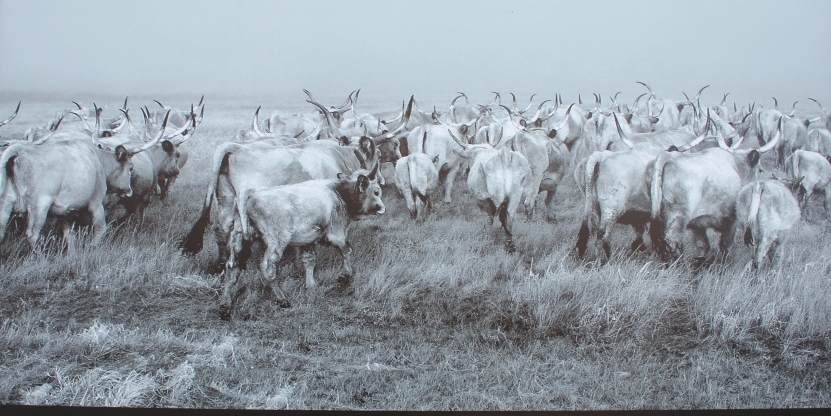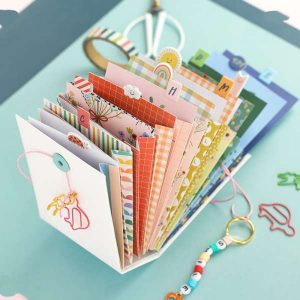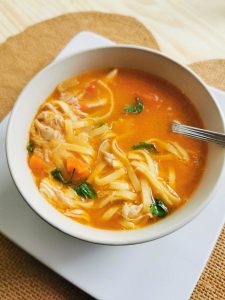
When the Embassy of Hungary in Oslo organized the open air exhibition “Natural Treasures of the Viserad Group”, we were invited to a conversation with the Hungarian ambassador to Norway, Mrs. Eszter Sándorfi.
The ambitious project “Natural Treasures of the Visegrad Group” was an impressive initiative from the Embassy of Hungary. The exhibition was organized and coordinated by the Hungarian nature Art, the Association of the Hungarian Nature photographers and realized in close cooperation with the largest nature photographers’ association of the Visegrad countries.

In the period December-January, 40 of the nature photographers’ impressive works were exhibited along the fence outside the Hungarian Embassy building in Oslo to the delight of both ordinary passers-by and visitors to the Embassy – a view certainly worth a stroll.
Related: On Being An Ambassador to Norway

We were honored to be invited to a conversation with the Hungarian ambassador Mrs. Eszter Sándorfi. Her Excellency handed over her credentials to HM the King Harald V of Norway on May 6, 2021.

“The development of our economic and trade relations and the growth of mutual interest are shown by the Norwegian companies present in Hungary or the Hungarian companies appearing in Norway. At the same time, there are still plenty of undiscovered opportunities in many areas of trade and tourism in our countries. Together with the Hungarian-Norwegian Chamber of Commerce (HNCC), established in 2016, one of my important objectives is to facilitate that Norwegian and Hungarian companies find each other in order to implement successful business projects,” the Ambassador underlined at the beginning of our conversation.
During our meeting with the ambassador, she tells us that she studied in the Diplomatic Academy in Vienna after the fall of the Iron Curtain. She used to work in Brussels between 1994-1999 dealing with the Partnership for Peace Program, a member of the team preparing Hungary’s accession to NATO in 1999. During her carrier she also served as special advisor to NATO relations with Eastern Europe then became security policy director before she was appointed ambassador to Greece.
In the period before she was appointed Ambassador to Norway and Iceland, she served as Director for the North American Department.
What knowledge did you have about Norway before arriving in our country?
From the professional point of view we are both members of NATO so I naturally followed our relations related in the context of our security policy cooperation. Although Norway is not a member of the EU but part of the European Economic Area. I actually remember the disappointment of some Norwegian friends in Brussels because of the outcome on the referendum.
As for the country, I knew of course, that Norway offers a beautiful landscape with breathtaking nature. Besides, I am very fond of the music of Edvard Grieg, and Henrik Ibsen is probably the most famous author in the world after Shakespeare.
I also watched several Norwegian films and TV series, like «State of Happiness» (Lykkeland) and Lillyhammer. A book I really appreciate is “Out Stealing Horses” by Per Petterson. Now, I don’t have the time to such pleasant activities anymore.
What would you say are the most important characteristics for a diplomat?
First of all, I would say a talent for networking and a willingness to engage with people. However, the Covid-19, which has been the reality most of my time as the Ambassador to Norway, has prevented me from a lot of activities I otherwise would have liked to take part in or initiate. So, when working as a diplomat, you must always have a willingness to redefine and change. Most small countries are only able to employ specialists to a limited extent, so you must be able to successively focus on new challenges. The Hungarian Norwegian Chamber of Commerce is an important association and B2B meetings are important. I also want more people to visit Hungary, as tourists as well as to do business or to study.

I am happy that in spite of the Covid difficulties we managed to realize a very interesting cultural project. The Director of the Hungarian National Széchenyi Library visited Norway last September. Apart from having consultations with the Director of the National Library and the Deichmann Library in Oslo, we travelled up to Svalbard to deposit for the first time electronic copies of significant documents of Hungarian culture and history in the Arctic World Archive, based on the collection of the National Széchényi Library. Located in one of the closed coal mines in Longyearbyen, the northernmost inhabited settlement in the world, the facility aims to preserve the cultural and historical heritage of different nations for posterity.
Related: Norway Won Seat On UN Security Council
What are the biggest challenges for a diplomat in Norway or Scandinavia?
What used to be called consular assistance that was considered more an “administrative routine” became increasingly central during the Coronavirus pandemic. Embassies had to be able to organize repatriation, bringing people home, to their families and or back into their jobs. We received and still receive plenty of questions related to the pandemics. As for the business relations, although Norway is part of the EEA, one could not characterize it as a completely open market, like the EU-members. In addition, there are some ideological issues, which is more reflected in the media.
Does a conflict area like Hungary formally loosing access to over €200 million in grants from Norway, Iceland and Liechtenstein last year amid growing concerns about the country’s democratic backsliding affect your role as the Hungarian ambassador to Norway?
Your question is interesting as our Norwegian partners never argued with the wording of “democratic backsliding” in this context, a wording used by the media and some politicians, and which I absolutely refuse with regards to my country. The Norway Fund Financial Mechanism is an important tool to strengthen cohesion within the EEA community. To put an ideological pressure and conditionality on this process is very controversial, and serves the opposite purpose what it was originally meant to be: deepen division instead of helping cohesion. Flexibility and compromise might have been the key here because it is a pragmatic issue that has now a negative impact on a lot of good projects, like helping green economy, disadvantageous regions, people-to people contact, with the participation of companies and different organizations of Norway and Hungary.
What do you think about the relationship between Hungary and Norway?
There’s a lot of potential and possibilities. Our countries are getting closer and closer, and we also have to find joint answers to upcoming new challenges, like climate change, energy security, the future of Europe. I think it is important to concentrate on those issues which strengthens cooperation, the positive agenda. We already have many common interests, like business, tourism, culture and education. I am also open for the media and public relations; it is very important to understand each-others’ history and culture better.

Is there something an ambassador must pay more attention to today than before?
This is a complex question. A lot has changed. Today, communication is so much faster than before. Now, you have to act very fast but you cannot compete with new agencies and it is not your job as a diplomat. High-level meetings can be organized very quickly and – apart from COVID – take part quite frequently in different formats, so an ambassador has definitely a different role than 50 years ago. I think that diplomacy in practice has become more similar to other “business like” international activities.
Has digitalization changed diplomacy – what are your views on that? With digitalization, work processes have certainly changed very substantially, even for the most senior diplomats. I think also that social media and other new forms of communication, as well as the additional time pressure this creates, have affected the job profoundly. And I think that our most recent – forced – experience with videoconferencing will also lead to very substantive changes in the way we work.
However, diplomacy is very much about developing personal relations and building personal trust, and a lot of that can only be done in person.
What does diplomacy mean to you?
This is a very intricate question. As I have said before, diplomacy has become very similar to other international activities. However I am a Hungarian diplomat so I work primarily for Hungary. On the other hand, we are part of regional cooperation as the Visegrad Four, NATO, the European Union, OSCE, UN etc. Modern technology and communication, far-reaching economic relation produced a very strong interlink in the globe. I think the most important role of diplomacy is to work for a more stable, secure and livable world for the next generations.
Thank you so much, Mrs. Ambassador.
The Hungarian ambassador to Norway, Mrs. Eszter Sándorfi, was interviewed by Tor Kjolberg
All images © Tor Kjolberg/Daily Scandinavian, except where otherwise noted
The post In Conversation With the Hungarian Ambassador to Norway appeared first on Daily Scandinavian.



